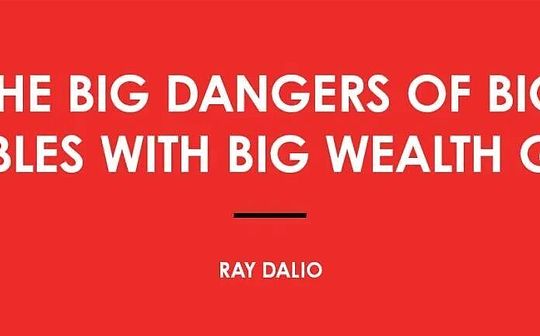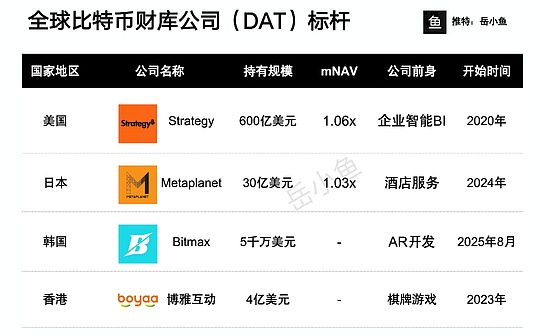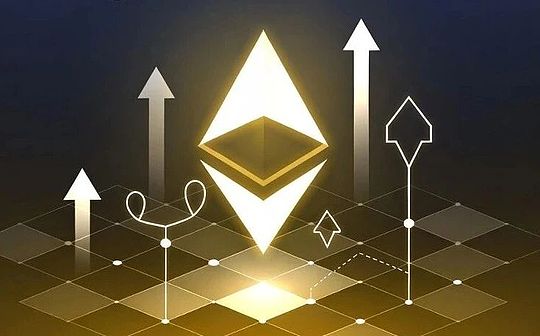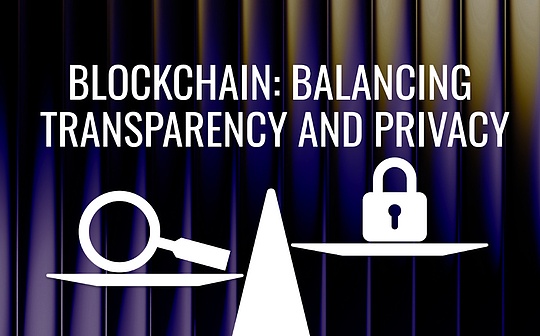
Author: Emi Lacapra, Source: Cointelegraph, Compiled by: Shaw Bitchain Vision
Important points
-
If the stock market can quickly adapt to changing technological and economic needs, it may be possible to survive the impact of artificial intelligence.
-
Depend onNew businesses created by artificial intelligence, such as robotics, biotechnology or aerospace, are expected to drive economic growth, and stocks that reflect such progress will be more likely to survive the turbulence of innovation.
-
As artificial intelligence reshapes the labor force and market, turbulent periods should be expected; therefore,The next few years are a time to adapt to new technologies.
-
The future of Bitcoin depends on whether it can prove that it is a true store of value, and can also be transformed into a medium of transactions.Artificial intelligence can facilitate this process, mainly by affecting its scalability and transaction processes.
-
As a decentralized system, Bitcoin is not affected by internal political factors, and human factors may also disrupt its operation.It onlyNeed to keep up with the development of new technologies, you can keep pace with the times.
No one can predict what will happen in the next 50 years, especially in financial markets affected by so many external factors.
However, by analyzing the current status of artificial intelligence (AI) and its impact on fintech fields such as Bitcoin and stocks, we can understand what the best investment options are among these financial instruments.
The purpose of this article is to help you make smarter decisions and understand which one is the better choice in the future, Bitcoin or stock.
Stocks or Bitcoin: Which one survives the AI revolution?
Artificial intelligence will accelerate innovation and efficiency improvements in multiple industries, fields and all aspects of our lives, which will undoubtedly drive improvements in efficiency and scale of technologies such as Bitcoin.But what about stocks?Have their investment philosophy become a thing of the past?Let’s explore further.
How is the stock situation?
In 1602, with the establishment of the Dutch East India Company, the world’s first stock market was formed in Amsterdam.This was originally a place to trade company stocks and quickly developed into a model of financing and investment.By the end of the 17th century, London had developed its own trading venues, and the New York Stock Exchange did not appear until 1792, spreading this model across the Atlantic Ocean.
Stocks represent ownership of the company, and the stock market is a place for investors to buy and sell stocks.Stock value will fluctuate based on company performance and market conditions, including the ability to adapt to technological changes such as artificial intelligence.
For centuries, the stocks of companies that embrace technological advancements have withstood the test of economic cycles, wars and turmoil brought by technology.In hindsight, companies that bet on artificial intelligence seem to be unable to escape the same fate.
Specifically,Companies that apply AI through automation, data analytics and new business models are more likely to succeed.
Historically, the inflation-adjusted annualized returns of market indices such as the S&P 500 in the past few decades have been around 7%-10%.The index tracks the performance of 500 of the largest listed companies in the United States and is widely used as a benchmark for the overall stock market.
Compared with the S&P 500, Bitcoin (BTC) performs much higher, as the specific data is shown in the table below:
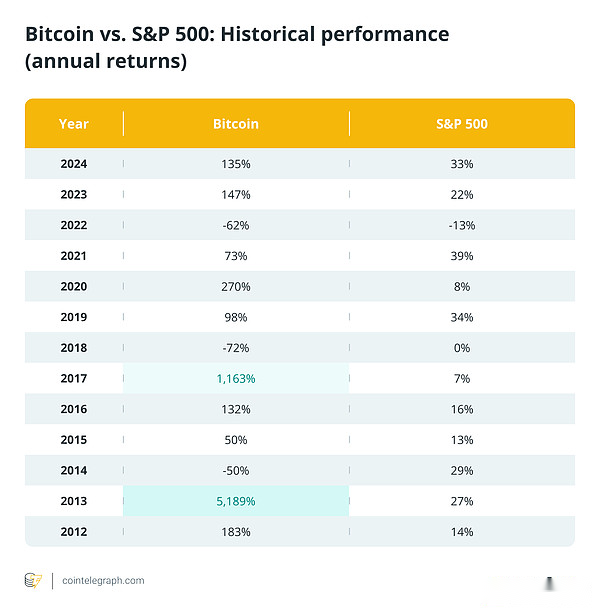
How is Bitcoin?
Bitcoin is a relatively new invention, created in 2009 by a man named Satoshi Nakamoto.
The project is presented in a white paper, detailing the peer-to-peer electronic cash system using blockchain technology.
Bitcoin’s significance goes far beyond the conceptual category of investment tools or store of value.It proposes a real monetary revolution that challenges gold and other financial instruments.
Bitcoin’s decentralized design can withstand the centralized control and inflation common in fiat currency systems.The supply of Bitcoin is fixed at 21 million, and its scarcity attracts those seeking protection from devaluation of the currency.
also,The transparency and security of blockchain are very consistent with AI’s demand for verifiable data.
Over the years,Bitcoin has established itself as a store of value and alternative currency, while still working towards its initial goal of becoming a widely used medium of transactions.
How artificial intelligence affects stocks and stock markets
Analyst and investor Jordi Visser predicts that in the next 50 years, this could pose a challenge to the existence of the stock market as an inefficient investment vehicle because “artificial intelligence accelerates the innovation cycle and makes listed companies an inefficient investment vehicle”.
The stock market has a long history, but the disruptive changes brought about by artificial intelligence make it difficult to take lightly, and companies that fail to make adjustments face the risk of lag behind.This is especially true for tech giants like FAANG Stocks (Facebook, Amazon, Apple, Netflix and Google).Although they are one of the largest investors in the field of artificial intelligence, these companies still need to keep up with the pace of rapid development and apply these technologies effectively.
Artificial intelligence will also have an impact on the stock market, from quickly analyzing massive data to predict market trends, to automated decision-making processes, to achieve faster and more efficient operations.Artificial intelligence will have a huge impact on investors’ trading and investment strategies.
Overall, AI may promote enterprise innovation, but it can also widen the gap between highly adaptable and stagnant enterprises.
How AI affects Bitcoin
Jordi Visser believes that Bitcoin is a better investment option in the future and compares it with gold that has lasted for thousands of years.
In addition to being a means of store of value, Bitcoin will also occupy a favorable position in the future financial field.The combination of artificial intelligence and blockchain could disrupt the traditional financial system and bring more capital and participants to the digital economy.
Artificial intelligence is expected to improve Bitcoin’s security and trading strategies and improve cryptocurrency trading with automated tools, enhanced data analytics and market model forecasts.All these changes may also lead to higher system efficiency.
Bitcoin mining will also benefit from artificial intelligence.Increase efficiency and optimize resource allocation by predicting optimal mining time, reducing costs and increasing output.As AI can detect existing or imminent failures, system maintenance will also be improved, thereby improving overall reliability.
However, Bitcoin faces regulatory risks, scalability issues, and price volatility, which may discourage investors who are usually more likely to choose more predictable and stable, such as stocks.
The convergence of artificial intelligence and blockchain may open up a new era of Bitcoin, promote its wider application by creating a more intuitive and safer ecosystem, giving it an advantage in competition with stagnant stocks.
Who will survive in the next 50 years?
Looking ahead to the next 50 years is almost impossible.Bitcoin and stocks have their own unique advantages and disadvantages.Their future ultimately depends on economic, technological and social change.
If stocks can adapt to an AI-driven economy, they will likely continue.Investors can reduce the risk of individual companies going bankrupt by investing in diversified portfolios, such as index funds, because these portfolios look safer.Stocks in robotics, biotech, aerospace and artificial intelligence may outperform assets with less technology-driven levels.
The emergence of quantum computing is often discussed in connection with Bitcoin’s security model, but most experts believe that its risks remain theoretically and have not yet been achieved.Combined with artificial intelligence, the impact can be positive or negative, depending on where the technology is going and how the Bitcoin network adapts.If only a few entities can take the lead in obtaining advanced quantum-artificial intelligence systems, then centralization of mining may also become a problem.
on the other hand,This combination can improve Bitcoin’s security and network optimization through improved transaction processing, wallet security or blockchain analytics, thereby improving Bitcoin’s efficiency and user experience.As long as the Bitcoin community remains ahead of its leadership in resisting quantum upgrades, its overall impact may be positive.
As decentralized finance (DeFi) becomes increasingly popular in the investment field, Bitcoin is also gaining an advantage in the competition with gold.In this way, itIt is becoming a better storage of value and prompting traditional markets to turn funds to digital finance.

